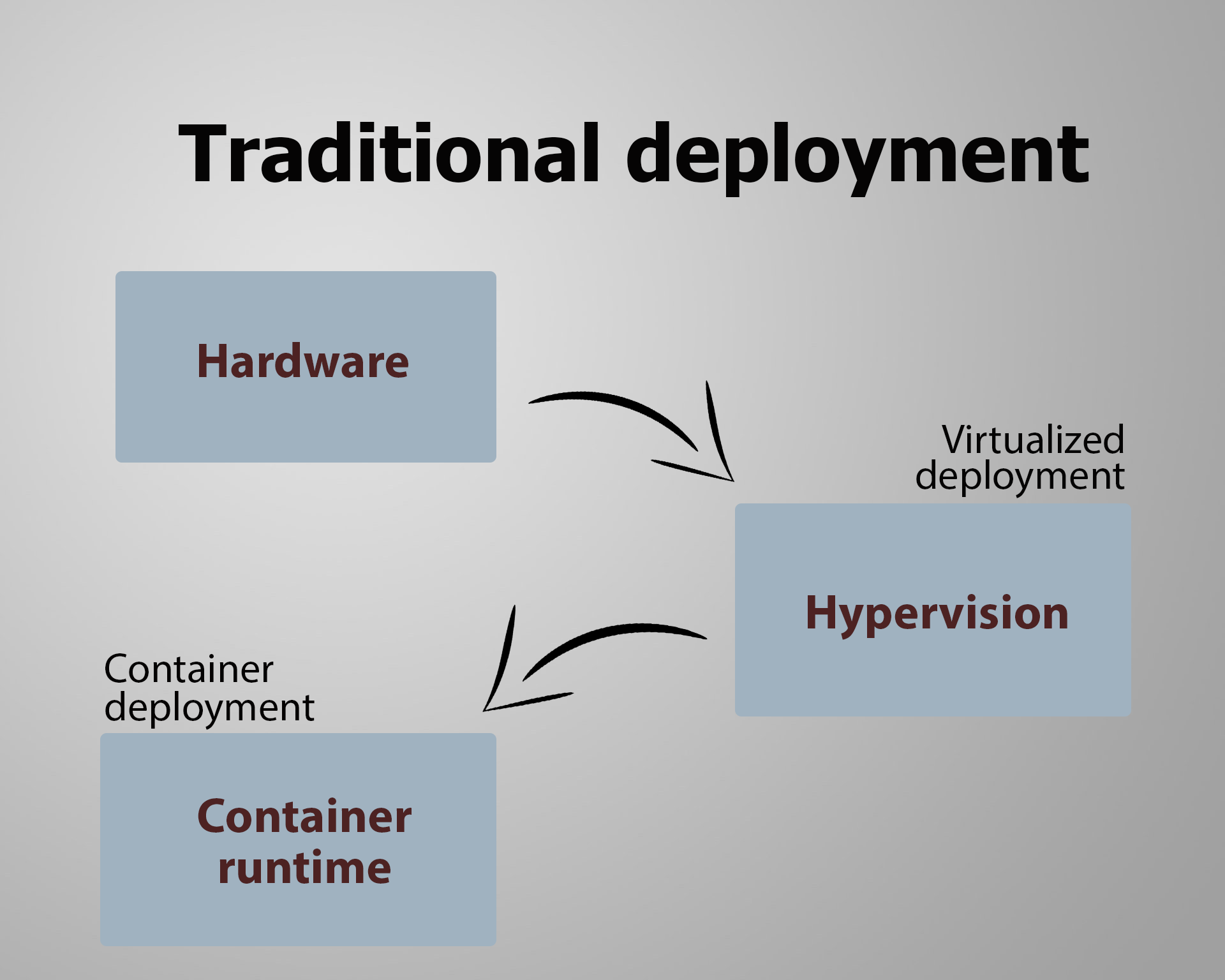Kubernetes is a platform with an open-source code that is used to manage containers. Originally, it was developed by Google for internal needs of managing containerized applications in different environments.
This platform controls container loads, services, and also automates operations with them. It allows simplifying manual processes involved in deploying and scaling containerized applications.
Kubernetes is designed to manage a cluster of Linux containers. This software manages a cluster of containers and runs Docker containers on multiple hosts, co-hosting and synchronizing a large number of containers. The platform was founded by Google and is currently managed by the Cloud Native Computing Foundation.

Kubernetes
It has to be considered that companies and organizations whose work involves the constant release of new software need DevOps. DevOps methodology is communication between Dev (development) and Ops (operations) teams at all stages of development, the result of which can guarantee the release of quality products.
The development of containers helps developers to focus on creating a quality product. It allows reducing the time spent on working with the infrastructure. Kubernetes helps developers write applications that run in a cluster because the platform is used to orchestrate containerized applications.
Kubernetes maintain containerizing including Docker, linking a collection of containers (container – software suite is a way to launch an application).
Docker is software for delivering, managing, and launching applications in containerization-enabled environments, which makes it a good tool to launch containers. By contrast, Kubernetes is a platform for launching and managing containers from a variety of container environments.
Docker is a containerized environment supported by Kubernetes. Kubernetes allows you to build a “Cluster” while Docker runs on a separate node.
Using the Kubernetes platform, we are in contact with a cluster, as this is the ultimate goal of installing Kubernetes.
Main is presented in each cluster, regulating its management. This is a process responsible for coordinating events in the cluster: scaling, monitoring, etc.

Traditional deployment
The Kubernetes cluster has 2 types of resources:
- The control plane coordinates the cluster;
- The control plane governs all activities in the cluster.
Nodes are elements that make a cluster that runs applications.
Node is a separate cloud virtual machine or physical equipment (computer). Nodes have Kubelet – the process that communicates with the Main process, using the Kubernetes access points.
Every node in a cluster has services for launching applications in containers – Docker and elements for centralized management of a node. Kubelet is a process that manages node and data exchange with Main. Kubelet is in every node and processes PodSpec specifications that set the maintenance method of containers in a module.
Module (contained in nodes) is an abstraction of a container or a complex of containers. It is the unit for launching and managing applications. A module in a cluster contains an IP address that is accessible internally.
Since modules live for a short period of time, they have dynamic IP addresses which allow redistributing if a module is updated or created from the very beginning. This is one of the reasons that interfere with connecting to the module by IP address. As a result, it becomes necessary to resort to using services that provide a static IP address of the module.
Popular services providing statical IP addresses of a module
The controller is a process managing a cluster state. One of the types of controllers – Replication Controller responsible for launching required quantity of module copies ensuring automatic scaling of Kubernetes. If there are a lot of modules, the controller will sort them. But if there are not enough modules, it will create them.
Kubectl is one of the tools of the Kubernetes command-line to realize commands in a cluster. It allows using a list of commands and functions in Kubernetes, apps deployment, managing cluster resources.
Kubernetes provides a list of popular tools for integrating software development and deployment processes.
MiniKube is a customized implementation version of Kubernetes that creates a virtual machine on local equipment (computer).
Helm is an official package manager of Kubernetes.
Skaffold is a Google utility for local development in Kubernetes (quite popular in the field of web testing services).
To sum up, we’d like to note that Kubernetes is an opportunity to make applications work in a cluster and effectively manage them. Also, it allows automating their deployment and scaling in a cluster, making use of local and cloud infrastructures.










0 Comments